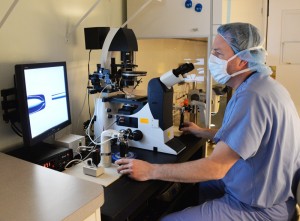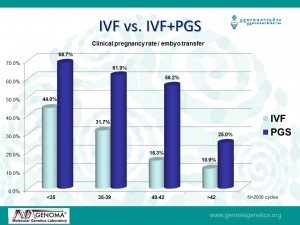 Northeastern Ohio Fertility Center offers the most advanced technology to give our patients the best chances of success.
Northeastern Ohio Fertility Center offers the most advanced technology to give our patients the best chances of success.
Patient advantages include:
Egg & Embryo Vitrification – an advanced freezing process that produces a higher rate of survival of frozen embryos than the traditional slow freezing technique.
The higher rate of survival of frozen embryos in turn leads to higher pregnancy rates.
Vitrification allows for the preservation of unfertilized eggs. Prior to vitrification technology, very few eggs frozen with slow freezing techniques survived the freezing and thawing process and fewer still resulted in successful pregnancies. Vitrification technology allows unfertilized eggs to be stored or preserved for later use, with extremely high chances of success.
Pre-implantation Genetic Screening & Diagnosis (PGD) Technology – the process of removing cells from an embryo for genetic testing to select the best, most genetically normal embryo for transfer to the uterus. In most cases, PGD testing looks for a single, specific genetic abnormality. PGD is most often utilized when a genetic abnormality has been identified within an individual, couple, family history, or previous pregnancy. Pre-implantation Genetic Screening (PGS) looks at the DNA of the embryo to screen for numeric chromosome abnormalities (aneuploidy) and translocations (chromosomal rearrangements).
Watch a video on Blastocyst Biopsy procedure
 This chart illustrates the advantage of using PGS in combination with IVF and its effect on success (Data not specific to NEOFC; image courtesy of Genesis Genetics).
This chart illustrates the advantage of using PGS in combination with IVF and its effect on success (Data not specific to NEOFC; image courtesy of Genesis Genetics).
Genetic abnormalities have been identified for any disease for which a genetic mutation has been identified. There are thousands of genetic conditions that can be identified. Common genetic diseases with identifiable mutations include:
- Cystic Fibrosis
- Muscular Dystrophy
- Huntington’s Disease
- Hemophilia A
- Sickle Cell Anemia
- Tay-Sachs Disease
- Down Syndrome
This is just a brief selection of the thousands of genetic abnormalities that can be identified using these techniques.
Pre-implantation diagnosis and screening improves our ability to select an embryo that will result in a successful pregnancy and a healthy baby. These techniques are probably the most recent technologic advancement in the field of Assisted Reproductive Technologies which will allow patients to benefit from higher success rates now and in the future.


